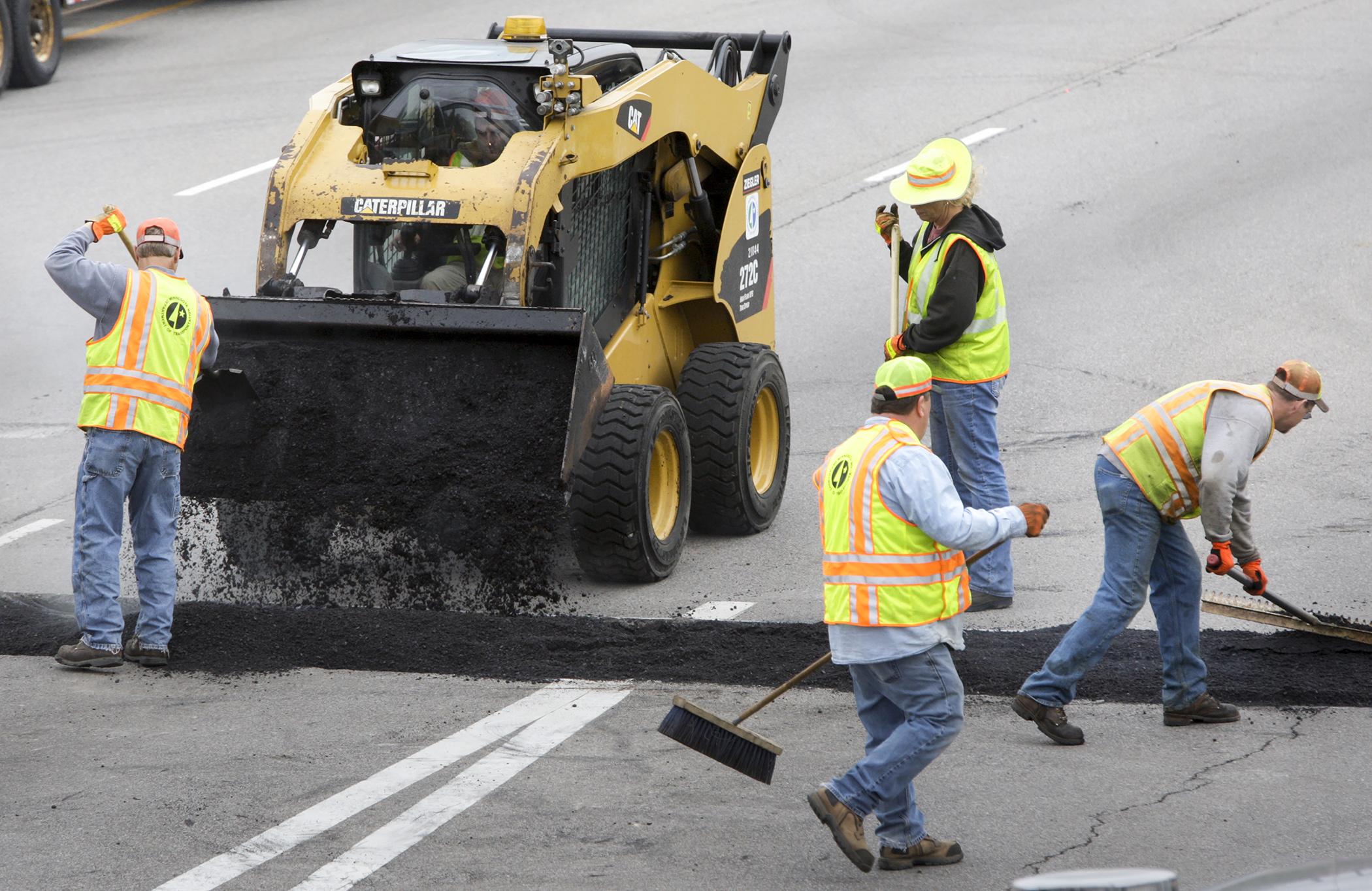More towns are going local when it comes to road funding

All is not “LOST.” But “LOST” has become pretty important for a lot of Minnesota towns.
“LOST” stands for “local option sales taxes,” and they’re an increasingly popular funding mechanism for cities and towns looking to upgrade municipal facilities.
If their proposals are approved by the House, Senate and governor, the local unit of government can go before voters in the next election and ask for the go-ahead from citizens to increase sales taxes.
Proceeds from those tax increases have customarily been earmarked for constructing or upgrading things like fire and police stations or government centers.
Yet, this session, municipalities are more frequently proposing to use local sales tax money to fund road construction, drinking water and wastewater treatment plants, and other infrastructure projects. When such subjects have come up at the Capitol in the past, they’ve usually been the province of bonding proposals, with cities and towns asking the state to approve the projects and issue bonds to fund them.
But some cities are asking if they can just keep it local. That is, take care of local needs with locally raised money. Just as state government is taking on many things that used to be the federal government’s bailiwick, so are many municipalities looking to fund local infrastructure through local sales taxes.
Until recently, municipalities would conduct local referenda asking for sales tax increases, then go to the Legislature to seek its blessing before implementing the tax. But the process has changed this session, in that cities and towns must first have their project proposals approved by the Legislature and governor before taking them before voters.
Five laws last year allow for the use of local sales taxes for the construction and improvement of roads and bridges, and, this session, the House Property and Local Tax Division is hearing five more.
The largest ask is from the city of St. Cloud. HF3792, sponsored by Rep. Dan Wolgamott (DFL-St. Cloud), seeks approval for sales taxes that would raise $86.1 million for four road improvement projects.
Second in scope is Moorhead’s quest to raise $75.5 million for regional transportation improvements. That bill, HF3546, is sponsored by Rep. Ben Lien (DFL-Moorhead), who emphasized that local sales taxes would only fund part of the “11th Street Project.”
“We’re asking for $57 million from the state through bonding, and about $25 million from federal grants,” Lien said. “And the focus of that money is on a grade separation part of the project. I think that the sales tax would be looked at as a backstop, something that could supplement any state bonding dollars we got.
“But I think the focus of the sales tax as funding for these transportation projects is the same as for a lot of these asks. The local property tax base is getting stretched thin, and money from the state specifically for transportation projects is not going as far as it once did. Which gets back to Gov. Walz’s conversation about increasing the gas tax. I think that’s more what is going on with a lot of these sales tax bills: That cities need this work to get done, and they’re not finding the revenue to get these done.”
The other cities seeking authority to request a local sales tax increase for street and road projects are Edina to fund $39.2 million in projects, Fairmont ($30 million) and Waite Park ($15.5 million).
Rep. Bob Gunther (R-Fairmont) sponsors HF4129, which would allow the city of Fairmont to impose a 0.5% local sales tax to raise $30 million for improvements and reconstruction of roads that have been deemed 40 or lower on a Department of Transportation rating of street quality.
“When you have 75 miles of road and 25 percent of it is rated under 40, that qualifies as a need,” Gunther said. “The county could raise taxes to fund the roads without having to come to the Capitol. We talked about that, but, for whatever reason, they have no interest in doing that. So the city decided to go this route.”
So is using local sales taxes to fund roads and streets a wave of the future?
“I think so,” said Lien, “These projects need to get done. They need good streets to drive on. … So, yes, if they’re not getting funding from the state, they need to find other means. The bonding backlog is $5 billion, and we’ve only been passing $1.5 billion in bonding in recent years.
“If we had passed a robust, long-term, comprehensive transportation bill in the last couple of years, would these still be coming forward? I don’t know. If we do pass one, I think you’d probably see a lot of these sales tax requests wane.”
Related Articles
Search Session Daily
Advanced Search OptionsPriority Dailies
Ways and Means Committee OKs proposed $512 million supplemental budget on party-line vote
By Mike Cook Meeting more needs or fiscal irresponsibility is one way to sum up the differences among the two parties on a supplemental spending package a year after a $72 billion state budg...
Meeting more needs or fiscal irresponsibility is one way to sum up the differences among the two parties on a supplemental spending package a year after a $72 billion state budg...
Minnesota’s projected budget surplus balloons to $3.7 billion, but fiscal pressure still looms
By Rob Hubbard Just as Minnesota has experienced a warmer winter than usual, so has the state’s budget outlook warmed over the past few months.
On Thursday, Minnesota Management and Budget...
Just as Minnesota has experienced a warmer winter than usual, so has the state’s budget outlook warmed over the past few months.
On Thursday, Minnesota Management and Budget...